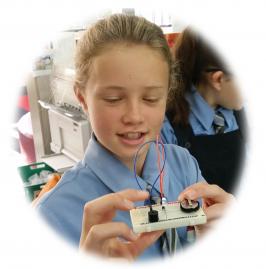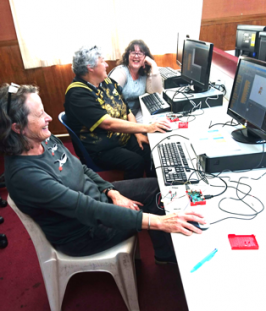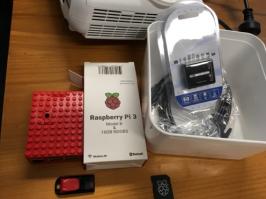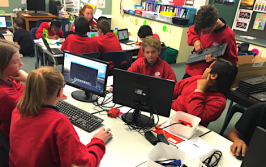Learning digital technologies in years 6–9 with Raspberry Pi

Units of work, professional development, and Raspberry Pi technology supported teachers to provide learning in alignment with the draft digital technologies curriculum.
The project used an inquiry approach and focused on three areas of the draft curriculum:
- digital systems
- programming
- algorithms.
The Raspberry Pi is a series of small, single-board computers developed in the United Kingdom by the Raspberry Pi Foundation to teach computer science, programming, and physical computing in schools. This initiative used Raspberry Pi 3, which has on-board wifi and bluetooth capability.
Teachers' reflections

Katie Everett from Fernridge Primary School started with no knowledge of Raspberry Pi or of coding. She felt that a strength of the project was the students seeing her as a learner, working alongside them.
Parents at our technology-sharing evening were amazed at what their children were able to do. We are a semi-rural school and the students are talking about setting up systems in their barns to see if the horses are warm enough!
Katie Everett
Charles Kendall from Hadlow Preparatory School, who had some experience in teaching digital technologies, reported:
Being able to share new learning with the learners was great. From the outset I let them know that this was all new to me and if I could do such and such in my class, then they had no fear to have a go in theirs, and that if I couldn’t do something I had to go and find out.
Charles Kendall
Teachers enjoyed working in a collaborative learning environment – problem-solving and sharing new knowledge.
Approach

The programmes and lessons were based on the emerging digital technologies curriculum and tagged to curriculum levels.
The first term had a focus on digital infrastructure and how the Raspberry Pi worked. The second term focused on programming and physical computing with the Raspberry Pi.
The students were in years 6–9 at the following schools:
- Fernridge Primary School
- Masterton Intermediate School
- Tinui School
- Hadlow Preparatory School
- Makoura College
- Wairarapa College.
Including Wairarapa College helped the primary teachers to understand what was expected of students in digital technologies at secondary level.

Ginette Van Praag of the Technology Hub Ltd provided the schools with digital equipment, technical support, and professional development.
Each school was given up to 30 Raspberry Pi and the associated peripherals, as well as electronic kits for each child. The Raspberry Pi includes an SD (secure digital) card.
Ginette provided technical support that allowed for easy installation of additional software beyond the basic software provided. This meant that student learning could readily be extended once they had grasped the basics.
The teachers had release time for professional learning prior to the kits being introduced to classrooms. Ginette also supported teachers when they were back teaching in the classroom.
Note that the programmes and/or resources used within this project are not officially endorsed by the Ministry of Education.
